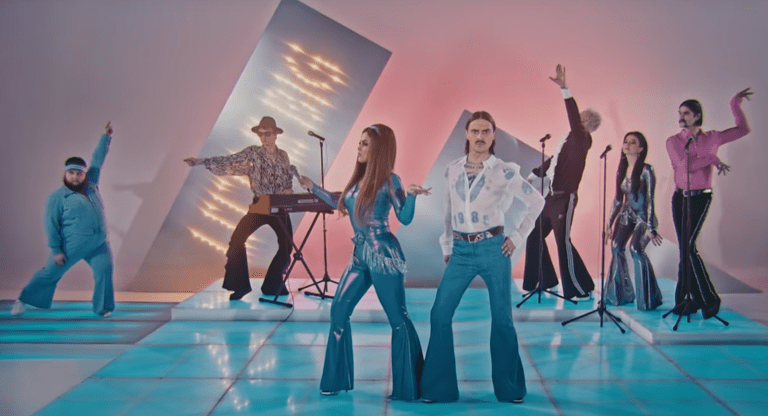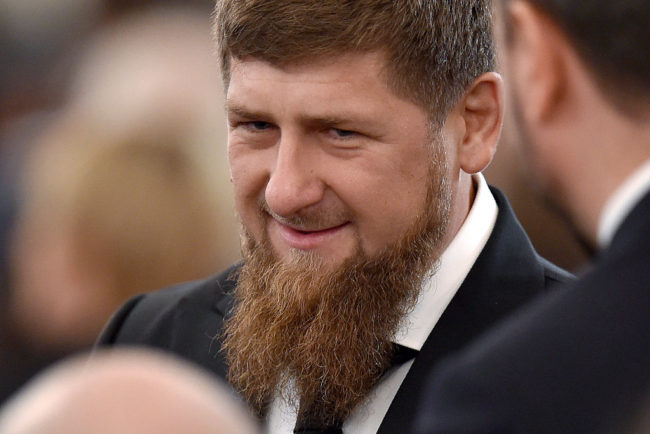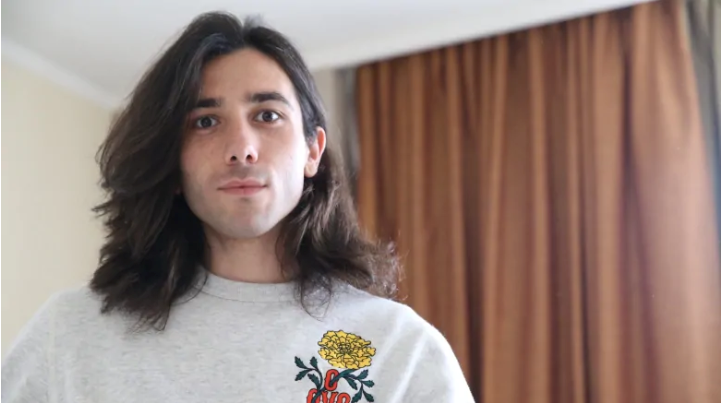Russia’s Eurovision entry stands in solidarity with trans people while trolling the man behind Chechnya’s gay purges

Russian pop band Little Big dropped the music video for “Uno”, their Eurovision contender, which totally says trans rights. (EC1)
Eurovision Song Contest contestants come in many forms. Sometimes, they’re plastic pop singers, and other times, they’re out to make powerful political statements.
Russia’s entry to the Rotterdam-based festival will see punk-pop band Little Big launch a disco-themed track that stands in solidarity with the trans community while also trolling Chechnya leader Ramzan Kadyrov, who has overseen a horrific pogrom of the country’s LGBT+ citizens.
Announced Thursday by Eurovision organisers, “Uno” is the Saint Petersburg-based band’s attempt to sweep up the top award and comes with a music video filled with flared trousers and handlebar moustaches.
Against a pastel backdrop, the video sees the quartet boogie away to the beat as a man spoofed to look like Kadyrov dances in the background.
It’s already tallied more than five million views in less than a day, becoming the most viewed Eurovision contender clip so far which, on the top of its lungs, screams: “Trans rights!”
Singers Ilya Prusikin and Sonya Tayurskay later took to Tiktok to challenge users to re-enact their dance routine.
Bookies currently predict the song placing fifth in Eurovision, with Bulgarian singer Victoria’s bleary-eyed ballad “Tears Getting Sober” set to score the winning spot.
What is the gay purge in Chechnya?
Since the collapse of the Soviet Union, Chechnya, a republic nestled in the mountains of Russia’s southern brother, has wrestled with violence.
Being gay is taboo in Chechnya, a primarily Muslim nation, which pushed the lives of many queer folk into private online chat rooms and darkened alleyways.
But one day, this all changed.

Ramzan Kadyrov, leader of the Chechen Republic, where allegations of anti-gay purges have been rife since 2017. (NATALIA KOLESNIKOVA/AFP/Getty Images)
Milashina first reported the pogrom in 2017, alleging that 100 gay men had been arrested and three killed in a sweep widely condemned by activists and lawmakers across the world.
Russian LGBT+ activists set up underground tunnels and trails in attempts to ferry the men out of the country or else be captured in the relentless campaigns during the Spring and Summer.
Witnesses have painted a brutal playbook of Chechen regional authorities bundling gay men into cars, thrown into basements of police stations or thrown into facilities where they were tormented and starved.

Amin Dzhabrailov was beaten and tortured with electric shocks as part of Chechnya’s ‘anti-gay purge’ (CBC News)
One man who escaped the torturous roundups explained how “guys with guns” burst into a salon where he was getting his hair done one day.
They handcuffed him before driving him to a torture facility, where he was held for two weeks with around 17 other queer men.
Days rolled by as the men were abused, electrocuted and psychologically rattled.
“It’s like [being] on the edge of dying, especially when they’re using that machine which is making electricity,” the victim said.
“I was screaming to stop this.”

